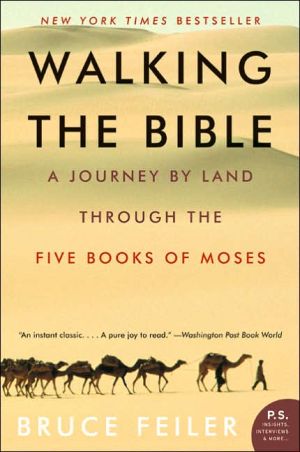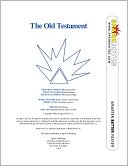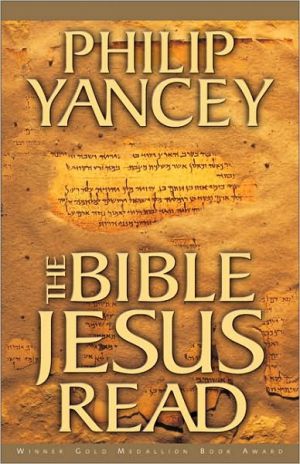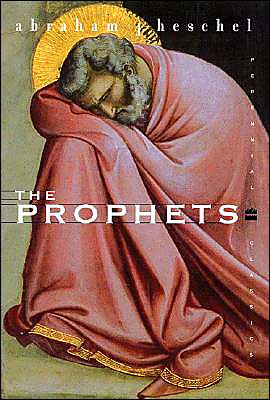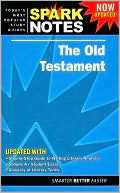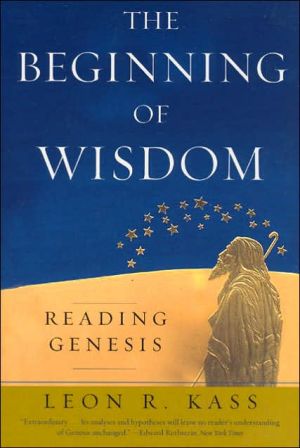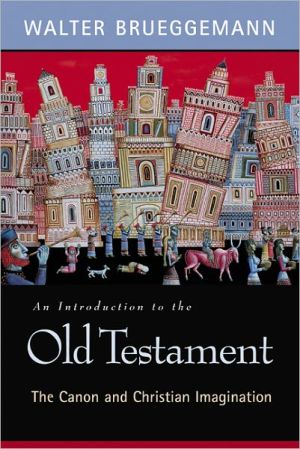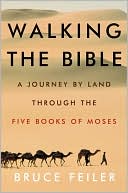Biblical Literacy: The Most Important People, Events, and Ideas of the Hebrew Bible
As he did so brilliantly in his bestselling book, jewish literacy,Joseph Teluslikin once again mines a subject of, Jewish history and religion so richly that his book becomes an inspiring companion and a fundamental reference. In Biblical Lileracy, Telushkin turns his attention to the Hebrew Bible (also known as the Old Testament), the most iniluential series of books in human history. Along with the Ten Commandments, the Bible's most famous document, no piece of legislation ever enacted has...
Search in google:
As he did so brilliantly in his bestselling book, jewish literacy,Joseph Teluslikin once again mines a subject of, Jewish history and religion so richly that his book becomes an inspiring companion and a fundamental reference. In Biblical Lileracy, Telushkin turns his attention to the Hebrew Bible (also known as the Old Testament), the most iniluential series of books in human history. Along with the Ten Commandments, the Bible's most famous document, no piece of legislation ever enacted has influenced human behavior as much as the biblical injunction to "Love your neighbor as yourself." No political tract has motivated human beings in so many diverse societies to fight for political freedom as the Exodus story of God's liberation of the Israelite slaves—which shows that God intends that, ultimately, people be free.The Bible's influence, however, has conveyed as much through its narratives as its laws. Its timeless and moving tales about the human condition and man's relationship to God have long shaped Jewish and Christian notions of morality, and continue to stir the conscience and imagination of believers and skeptics alike.There is a universality in biblical stories:The murder of Abel by his brother Cain is a profound tragedy of sibling jealousy and family love gone awry (see pages 11-14).Abraham',s challenge to God to save the lives of the evil people of Sodom is a fierce drama of man in confrontation with God, suggesting the human right to contend with the Almighty when it is feared He is acting unjustly (see pages 32-34).Jacob's, deception of his blind father, Isaac raises the timeless question: Do the ends justify the means when the fate of the world is at stake (see pages 46-55).Encyclopedia in scope, but dynamic and original in its observations and organization, Biblical Lileracy makes available in one volume the Bible's timeless stories of love, deceit, and the human condition; its most important laws and ideas; and an annotated listing of all 613 laws of the Torah for both layman and professional, there is no other reference work or interpretation of the Bible quite like this Stunning volume. Library Journal The Hebrew Bible has played an important role in American society as Judaism's primary text and as Christianity's Old Testament. Today, however, fewer people are as well versed in scripture, so the author, a lecturer and rabbi of Los Angeles's Synagogue for the Performing Arts, has written this readable introduction. Not a concordance or commentary but a personalized study guide or overview for the Jewish or Gentile reader, it is a less successful sequel to Telushkin's popular home references, Jewish Literacy (Morrow, 1991) and Jewish Wisdom (Morrow, 1994). Although the book does not merit reference status, some patrons might be helped by the selective summaries of and thoughts on weekly Bible readings or the enumeration of the 613 mitzvot (commandments) that guide the observant Jew. Telushkin's book has the potential to increase a reader's Jewish literacy either as an introduction or companion to study of the Hebrew Bible.Andrew B. Wertheimer, Spertus Inst. of Jewish Studies, Chicago
I.Genesis\ 1. In the begining\ \ "In the beginning, God created the heavens and the earth" (1:1). The first and most important fact established in the Bible's opening chapter, indeed in its opening sentence, is that God, and God alone, created the world. This assertion represents a complete break with the prevailing view at the time, that nature itself is divine. Ancient man worshiped nature; the sun was its most common manifestation. Interestingly, the Hebrew word for sun, shemesh, from the root meaning "servant,"leaves no doubt about the divine order of the universe: that which other people worship as God (i.e., the Babylonian sun god was called Shamash), the language of the Bible makes clear, is but God!s servant.\ Underscoring God's supreme and supernatural capabilities, the Bible declares that God can create through words alone.. "God said, 'Let there be light' and there was light" (1:3).\ The order of creation in Genesis I is:\ Day 1: light\ Day 2: the sky\ Day 3: the earth, oceans, and vegetation\ Day 4: the sun, moon, and stars\ Day 5: fish,insects, and birds\ Day 6: the animal kingdom and human beings\ \ In Hebrew, shamash is the title of the person who assists in the synagogue, while the shamash candle on the Hannuka menorah serves to light the other candles.\ Despite arguments advanced by biblical fundamentalists, Genesis 1 need not be understood as meaning that God created the world in six twenty-four-hour days. Indeed, given that there were no sun and moon prior to the fourth day, it is meaningless to speak in terms of standardized, modern time units. Many religious scholarsunderstand each of the six "days" as representing eons.\ Humans are the only beings described as being created "in the image of God!"(see entry 146) and thus apparently represent the apogee of creation.\ Many Bible readers have long puzzled over differences in a second version of the creation story presented in Genesis, chapter 2. While 1:27 suggests that man and woman were created simultaneously"in the image of God He created him; male and female He created them"-2:7-8 speaks of God fashioning Adam alone, from the earth.* Eventually, God concludes, "It is not good for man to be alone" (2:18) He puts Adam into a deep sleep, withdraws one of his ribs, and from it fashions Eve, the first woman (2:21-23).\ Is such an explanation of woman's creation demeaning to women? On the one hand, the claim that man was created first, and woman formed out of a part of him, might suggest the male's inherent superiority. On the other hand, the fact that every new creature depicted in the divine creation is more highly developed than the one that preceded it might indicate that woman, who is last to be created, represents the apex of creation.\ In any event, the account in chapter 1, which states that both sexes are created in God's image, clearly suggests that they are equal in God's eyes.\ God!s initial intention seems to be to create a herbivorous world, and so He directs human beings to restrict their diet to vegetables and fruits (1:29), while also confining the animal kingdom to the consumption of green plants (1:30). Later, after the Flood, God permits humans to eat meat (Genesis 9:3-4).\ By the end of the sixth day, God has finished His work, and so on the seventh day, He ceases to create, thereby establishing, as early *There are other differences as well: Genesis 2:7 records that God created man first, and then animals (2:19), the reverse of what is described in Genesis 1:20-28.\ John Milton (seventeenth century) observed in his Tetracbordon, "Loneliness was the first thing which God's eye named not good."\ as the Bible's second chapter, the tradition of the Sabbath: "And God blessed the seventh day and declared it holy, because on it God ceased from all the work of creation that He had done" (2:3). Much later, the Fourth Commandment ordained that Israel "remember the Sabbath day to make it holy,"as a reminder of the very first seventh day, during which the Lord refrained from creating (Exodus 20:8-11).\ The biblical view of creation is optimistic. Genesis's opening chapter repeatedly describes the Lord as pleased with what He has brought into being: "God saw that the light was good"(1:4); "The earth brought forth vegetation ... and God saw that this was good" (1: 1 2)"And God saw all that He had made, and found it very good" (1:31; see also 1:10, 18, and 21, where God pronounces similar judgment on His other creations).\ Yet good as it was, creation was still unfinished. The Rabbis of the Talmud deduced from God's ceasing to create that it is humankind's mission to serve as God's partner in finishing His creation and perfecting the world.\ 2. Adam, Eve, and the Garden of Eden\ Genesis 2:7-3:24\ The Tree of Knowledge of Good and Evil\ Geneisi 2:15-17; Chapter 3\ Adam and Eve, the Bible's first man and woman, are the prototype for all people. The Hebrew for "human being" is ben adam, a child of Adam.\ The couple begin their lives in a paradise, which the Bible calls the Garden of Eden. There, God provides for all their needs, in return for which He imposes several commandments: They are to be fruitful and multiply (see entry 147), fill the earth and master it (1:28), restrict their diet to fruit and vegetables (1:29), and refrain from eating from the "tree of the knowledge of good and evil."*God gives this commandment to Adam before He creates Eve, and offers no rationale for it. Adam simply is warned that "as soon as you eat [of the tree of knowledge], you shall die" (2:17).\ Biblical Literacy. Copyright © by Joseph Telushkin. Reprinted by permission of HarperCollins Publishers, Inc. All rights reserved. Available now wherever books are sold.
IntroductionPt. 1People and EventsIGenesisIIExodusIIILeviticusIVNumbersVDeuteronomyVIJoshuaVIIJudgesVIIII and II SamuelIXI and II KingsXIsaiahXIJeremiahXIIEzekielXIIIThe Twelve Minor ProphetsXIVPsalmsXVProverbsXVIJobXVIIThe Five ScrollsXVIIIDanielXIXEzra and NehemiahXXI and II Chronicles: The Bible's Final BooksPt. 2Laws and IdeasXXIGenesisXXIIExodusXXIIILeviticusXXIVNumbersXXVDeuteronomyPt. 3The 316 Laws of the TorahApp. IThe Books of Hebrew Bible in Order of AppearanceApp. IIDates of Major Biblical Events and CharactersBibliographyIndex
\ Library JournalThe Hebrew Bible has played an important role in American society as Judaism's primary text and as Christianity's Old Testament. Today, however, fewer people are as well versed in scripture, so the author, a lecturer and rabbi of Los Angeles's Synagogue for the Performing Arts, has written this readable introduction. Not a concordance or commentary but a personalized study guide or overview for the Jewish or Gentile reader, it is a less successful sequel to Telushkin's popular home references, Jewish Literacy (Morrow, 1991) and Jewish Wisdom (Morrow, 1994). Although the book does not merit reference status, some patrons might be helped by the selective summaries of and thoughts on weekly Bible readings or the enumeration of the 613 mitzvot (commandments) that guide the observant Jew. Telushkin's book has the potential to increase a reader's Jewish literacy either as an introduction or companion to study of the Hebrew Bible.Andrew B. Wertheimer, Spertus Inst. of Jewish Studies, Chicago\ \

